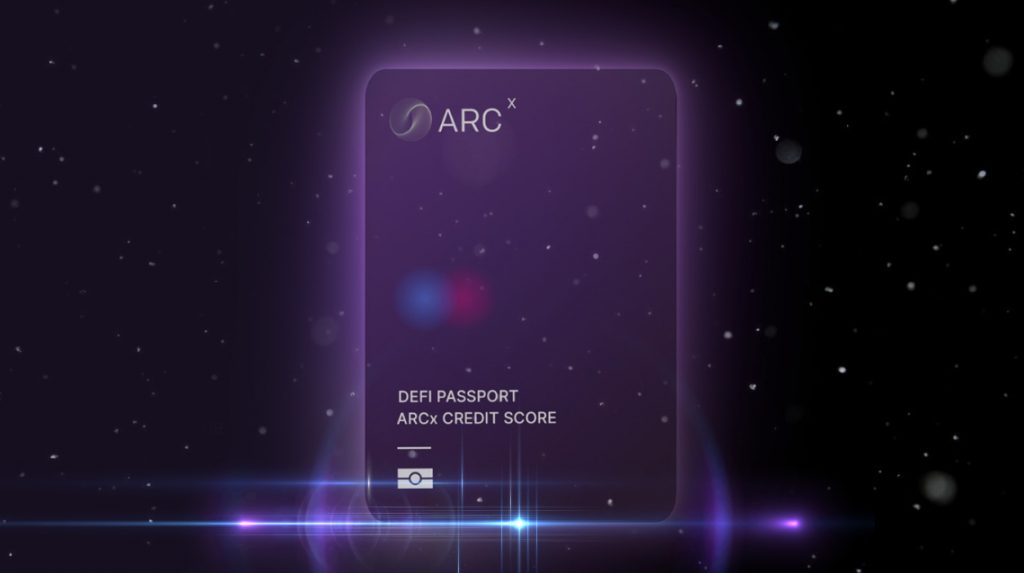With Aug. 23 announcement, ARCx joins the race to build the de facto DeFi credit score


The race is on for the first protocol to establish itself as DeFi’s de facto credit score. ARCx made strides in their own master plan this week, announcing over Twitter on August 23 the closed beta launch of ARCx Credit and their own DeFiCreditScore. There, the company called ARCx Credit, “A reputation-based decentralized credit market for DeFi, launching on #Polygon.”
A person’s credit score can significantly shape the state of their life, but credit scores aren’t a fact of life. FICO created the concept in 1989 to help lenders assess a borrower’s reliability to determine credit lines and rates. So far, in anonymous DeFi, every borrower has enjoyed equal access.
ARCx’s efforts predate crypto’s bear market–even if they echo its lessons. A Substack post published by the company last June said they raised $1.3M in a fundraising round led by Dragonfly Capital, Scalar Capital, and Ledger Prime, “secured with ARCx Governance Token (ARCX) pre-split for $7,500US per token with a six-month lock up, vested equally every month.”
The company rallied the cash to support their larger picture–an entire DeFi passport, which users were able to start claiming last summer. Interesting use cases that ArcX proposed for their fully fledged DeFi passport include an “Airdrop Score” that analyzes data to airdrop rewards to address exhibiting a pattern of holding airdrops and a “Governance Score” that DAOs could use to measure an address’s community involvement–and designate voting sway accordingly.
The DeFiCreditScore, which starts going live now, will be the first page in that passport–and not a moment too soon, they think, an effort to restore trust amongst the ongoing era of reckless actors and flat out hackers.
“DeFi today is like the Wild West. People can walk up to any random protocol, front-run users, rack up a bunch of bad system debt, and bounce over to the next town,” Tom Schmidt from Dragonfly Capital Partner said in their post last summer.
“If we’re going to build a new global financial system, we’re going to need something better than the pseudonymous systems we have today. ARCx is taking us to this next evolution of DeFi by giving users digital passports based on on-chain activity and rewarding them for being good actors. The future doesn’t look like FICO.”

Other companies like Cred and Bird have explored this untapped area of Web3, but ARCx has philosophized to an extra degree. Cred and Bird, for example, both use advanced machine learning systems to determine a borrower’s risk. Bird also uses off-chain resources to secure their estimates, says The Register. ARCx’s formula, on the other hand, is easily understandable and available to the public, promoting facts rather than the overarching trust in name recognition that’s defined DeFi so far–while remaining true to the space’s principles, doing things differently.
ARCx calculates their DeFi credit score according to three components. The Daily Score Reward evaluates borrow usage over the past 120 days. The Survival Score Reward evaluates a borrower’s ability to avoid liquidations. And the Liquidation Penalty “subtracts a fixed number of points for every day in which a liquidation occurs,” their Substack post from this week explains. Same as it ever was, a higher DeFi Credit Score unlocks greater capital efficiency.
“To support this, we have implemented a three-tiered vault design, with each collateral asset having three distinct vault options distinguished by the range of max LTVs offered (‘capital efficiency’), the minimum Score required to access the vault (‘score threshold’), and the maximum amount of debt a borrower can access (‘credit limit’),” ARCx also explained.
Is it a slippery slope to introduce a controversial metric like the credit score into DeFi–allegedly the harbinger of a boldly different future? Well, as sanctions and crises alike are teaching Web3’s many proponents, it’s a matter of balance and all up for debate.
“Where borrowers and lenders have their loan worthiness assessed by a central authority such as a credit bureau, DeFi makes it possible to run financial services with a peer-to-peer (P2P) system, eliminating the idea of an intermediary or central authority,” CoinDesk wrote in July. That could still remain true, even if those peers have the tools to evaluate each other.
Sticking to an air of authenticity, ARCx’s Substack post from this week also promises they’ll keep publishing system health reports on their Discord each day, along with their weekly report and commentary on Fridays.
Let’s see if it’s enough to get an edge on the competition. Sign up for ARCx Credit’s waitlist here–they plan to whitelist addresses over the next few weeks and months. A wider release will unfold after their audit with Trail of Bits in October.
Read related posts:
Disclaimer
In line with the Trust Project guidelines, please note that the information provided on this page is not intended to be and should not be interpreted as legal, tax, investment, financial, or any other form of advice. It is important to only invest what you can afford to lose and to seek independent financial advice if you have any doubts. For further information, we suggest referring to the terms and conditions as well as the help and support pages provided by the issuer or advertiser. MetaversePost is committed to accurate, unbiased reporting, but market conditions are subject to change without notice.
About The Author
Vittoria Benzine is a Brooklyn-based art writer and personal essayist covering contemporary art with a focus on human contexts, counterculture, and chaos magic. She contributes to Maxim, Hyperallergic, Brooklyn Magazine, and more.
More articles

Vittoria Benzine is a Brooklyn-based art writer and personal essayist covering contemporary art with a focus on human contexts, counterculture, and chaos magic. She contributes to Maxim, Hyperallergic, Brooklyn Magazine, and more.





















































